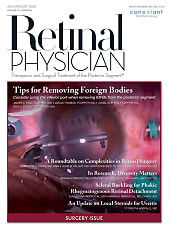UPFRONT
Balancing Act

JASON S. SLAKTER, MD
A few months ago, I read a report that Congress was considering a ban on industry-sponsored lunches or meals for physicians and staff in order to reduce the potential influence this might have on physician prescribing patterns. Going further, they were considering an outright ban on sampling of medications in doctors' offices. To me, this does little but hurt those patients who may rely on samples due to the costs of prescription medications or to "get by" until they are able to get a prescription from their local pharmacy. Of course, the overriding issue is one of influence: whether physicians are unduly influenced by pharmaceutical representatives and other "agents of industry" who might improperly affect patient care.
Personally, I think most physicians are smarter than that. How many of us rely on the pharmaceutical representative's detail information as the primary source of our knowledge? I would hope that the answer is not many. Usually, pharmaceutical representative visits are a pleasant (if not sometimes inconvenient) distraction in an otherwise busy day. More often than not, I don't have a chance to enjoy the snacks or food that might be provided, but at least the staff seems happy. I don't believe that I have ever prescribed a medication or altered my treatment approach simply on the basis of a representative's visit, a nice lunch being given, or sample products being left. Of course, I don't think I would be upset at all if someone were to leave a few samples of Lucentis in our office on occasion!
We are all aware of the increasing presence of industry at meetings and conferences. Certainly, some controls need to be exercised to prevent our specialty meetings, which should serve as a forum for open discussion and exchange of ideas, from turning into mere marketing expositions. However, we must keep in mind that most of the meetings that we attend, and in fact all of the publications that we read, are supported by advertising and grants from these same businesses. Without their support, most of the meetings that we attend and the publications we read would simply vanish.
THE VALUE OF DISCLOSURE
So, what do we do? It all comes down to common sense and restraint. We should unquestionably encourage the research and development being conducted by industry as it goes about identifying new and innovative approaches to help our patients. We should provide a means to openly discuss these new developments in a way in which we can honestly view their advantages and disadvantages. While limits are needed to prevent industry control over our presentations at conferences, we should not go so far as to restrict its needed involvement.
As with most things in life, it is truly a balancing act, and through a policy of open and honest discourse, full disclosure of conflicts of interest, and a willingness to keep an open mind, I think we can reach our goal of maximizing care for our patients. Finally, to do our part, Retinal Physician has adopted a new financial disclosure policy for our authors, which we believe will provide more information on possible conflicts of interest and improve the overall quality of our publication.








